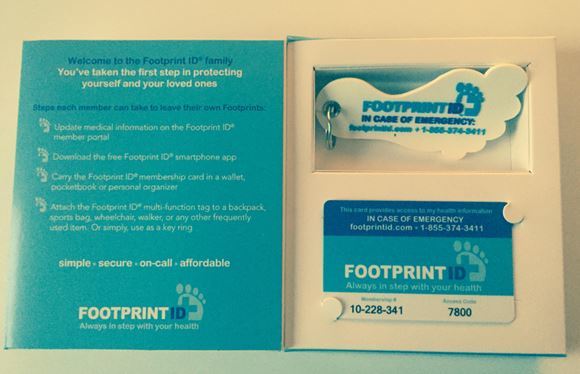 During our student’s senior year of high school we live in a bubble. All sights are set on one goal—getting into college. Students and parents focus on college selection, college applications, financial aid forms, and then we wait. We wait for the offers of admission to come pouring in and then we compare financial aid packages and help them pack their bags for college.
During our student’s senior year of high school we live in a bubble. All sights are set on one goal—getting into college. Students and parents focus on college selection, college applications, financial aid forms, and then we wait. We wait for the offers of admission to come pouring in and then we compare financial aid packages and help them pack their bags for college.
But wait. Is it really that simple? Hardly. Most parents would say it’s anything but simple; it takes work, commitment and perseverance on both parts—parents and students.
Now that your student has graduated, the reality of the truth hits you—your son or daughter is leaving for college. Are they ready? How will they ever survive on their own? How will you survive and cope with the void that’s there when they are gone? Will they be safe? So many questions and concerns are rolling around in your head.
From one parent to another, survival depends on knowing what to expect, what to look for, and how to respond to your student. Here are 10 tips that should help you be effective college parents:
1. Give yourself time to grieve (then move on)
It probably seems like yesterday that you were bringing your baby boy or girl home from the hospital and now they are preparing to go away for college. Although you always knew that this day would come and you are so proud of their accomplishments thus far, if you are really honest with yourself, there is a part of you that is also dreading it.
For this reason, there’s a pretty good chance that you will experience some separation anxiety, not unlike grief, when your child leaves the nest–often called “empty nest” syndrome. It’s normal for most parents and so while it’s nothing to panic over (or feel embarrassed about), you should give yourself some time to grieve and then move on with your life.
2. Don’t give in to fear
Boy how things have changed since we went to school in the 70’s and 80’s. They’ve even changed since my kids went in the 90’s and 2000’s. It’s a scary world out there and you would be crazy not to be anxious when your kids leave your care every day. But don’t let them see it; they need to feel safe and secure at school. Even though we know they are at risk, we have to trust that the teachers, staff, and administration will do their utmost to assure their safety.
3. Stay in touch (in moderation)
Before your son or daughter leaves for college make plans to stay in touch. Schedule time to communicate and discuss how often you need to hear from them. Don’t by like one father who tapped into campus security cameras so he could follow his daughter’s every move. Give them some freedom to socialize, study and explore their surroundings. A text every day, a phone call every week, and face time once a month should be enough to help both of you feel connected.
4. Practice tough love
Don’t rescue them from every difficult situation. You know the term–helicopter parenting. It’s important for them to make messes, get hurt, feel disappointment, and fail at tasks.This helps them develop life skills, achieve happiness, and be successful–the things we so desperately want to give them. Isn’t that what tough love is all about? Love your children so much you set rules, provide clear expectations, and allow them to fail so they can learn.
5. Watch the money
Money will burn a hole in your kid’s pocket. Before they leave for college have a clear understanding of what you plan to contribute toward living expenses and what you expect him to contribute. Explain the difference between wants and needs. Today’s kids are accustomed to instant gratification; but saving for something teaches them that just because they want something, it doesn’t mean they need it. When they are away at college, this will be the first question they ask themselves before pulling out an easily obtained credit card.
6. Your child is now considered an adult
You may still feel your child is still dependent on you, but the law does not. The Family Educational Rights and Privacy Act means that your student will have control over his own academic record, control disclosure of who can access those records, and monitor it for errors if detected. The tuition bill comes to the student online as well as any other student expenses. Ignoring these bills can be not only costly, but affect their status as students.
7. Discuss grade expectations
Enter into an agreement with your student before they leave for school. If they want to have fun and waste time while they’re on campus, focusing on socializing rather than studying, make it clear that they can pay their own way. But if they’re willing to work hard for a degree and maintain a certain GPA, you should definitely do what you can to help them. Now, this is not to say that you shouldn’t give them a little leeway. One bad grade doesn’t necessarily mean they’re slacking – it could just be a particularly hard teacher or class. Tell them you expect to be kept abreast of their grades. Many a parent is shocked when their freshman comes home at winter break and announces they are on academic probation.
8. Beware of the transfer
If you have a high school student thinking about college, be prepared to hear these words after their first few weeks, “I don’t like it here. I want to transfer colleges”. As your heart sinks and a hundred things go through your head, remember that I told you it would happen; and if you read a recent article I wrote, it might help you handle those words without your heart and brain exploding into a million pieces.
In most cases, you should stand your ground—at least until the end of the first year. Tell your student that if he/she still feels the same way at the end of the year you can revisit the option. It’s my experience that most students, later in life, thank their parents for giving them some tough love and not allowing them to transfer.
9. Learn how to listen (and not lecture)
It goes without saying that every parent will receive a homesick phone call at some point during the first semester of college. You must learn to listen and avoid the desire to “fix” things. Most of the time they just need to vent and once they talk things out and hear your voice, they feel better. Resist the urge to drive to college and rescue them—just listen and offer compassion.
10. Acceptance doesn’t necessarily mean graduation
Did you know that graduation rates differ wildly from school to school? About 400,000 students drop out of college each year. Students who start college but don’t finish are typically no better off than those who never even started, and in some cases might be worse off, if they took on debt. Help your student stay focused on the goal by providing words of encouragement and some of that tough love I mentioned earlier.









